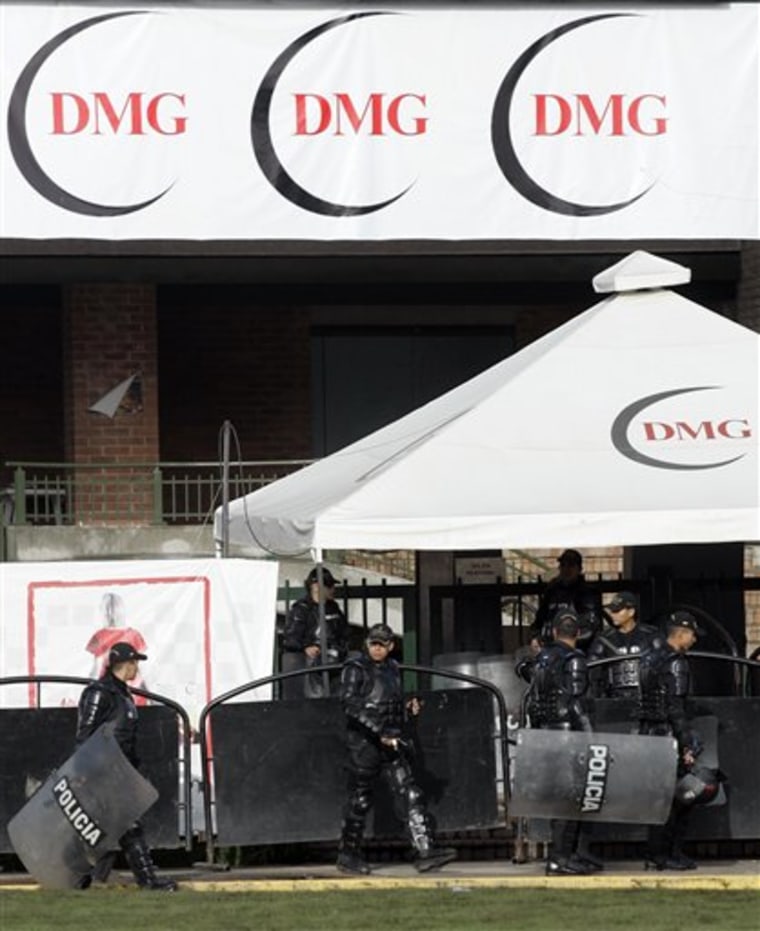Colombia declared a state of emergency Monday to crack down on illegal investment schemes that lured millions of people with promises of improbably high payouts.
Government officials promised to repay the poorest fleeced investors and sent police to shut down other alleged pyramid scheme operations, even though some loyal clients marched through the streets to defend companies that had offered interest rates as high as 150 percent a month.
"Citizens should understand that the government is protecting them," Interior Minister Fabio Valencia said as he announced the emergency measures. They include boosting prison terms for those who illegally collected money to 20 years from six, and giving mayors and governors police powers to shut down such businesses.
The emergency authority lasts 30 days, and could be extended for 30 more.
Millions of Colombians had invested cash with unlicensed companies. Panic set in last week when one company, Proyecciones DRFE, collapsed amid news that its owner had left the country — leaving about $270 million of investments in limbo.
Furious clients stormed and looted local branches in rioting that left 13 towns under police curfew and two men dead last week. Officials seized $42 million from 68 of the company's offices and arrested 52 employees, police said.
The bottom line
Pyramid schemes can offer dramatically high returns by using later investors' cash to pay off those who invest first. But they collapse when the flow of incoming money isn't enough to pay the growing pool of investors.
On Monday, police occupied 59 offices of the largest such investment company, DMG, in 20 of Colombia's 32 states, national police Gen. Orlando Paez said.
Federal financial regulator Hernando Ruiz said his office had found irregularities in DMG's balance sheets.
But DMG investors took to the streets in downtown Bogota Monday afternoon to defend the company and its owner David Murcia Guzman.
"He has made us dream," explained Andres Nova, 23, who said he'd invested $17,500 with the company. "It would be really great if he were president."
Savings gone
Murcia earlier told Bogota's radio W from his home in Panama that he had called depositors on Monday morning and urged them to stay calm. He did not make clear how he could offer such high interest rates, however.
Officials have said weak laws and legal maneuvering kept them from stamping out the fast-growing schemes earlier. President Alvaro Uribe has expressed regret that authorities did not act sooner, and Colombia's top banking regulator resigned last week.
Uribe vowed to help poor investors regain their savings, but said wealthier clients should have known better and will "have to take some blows to the chest."
Finance Minister Oscar Ivan Zuluaga on Monday announced the government plans to repay investors' principal — though not interest. Money would go first to those who had contributed the least, in an effort to protect the small investors who are most likely to be poor.
